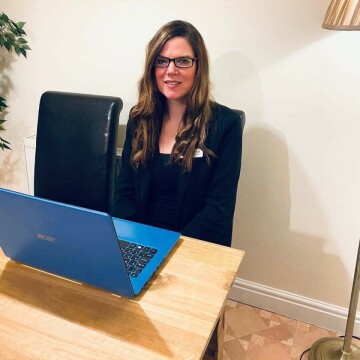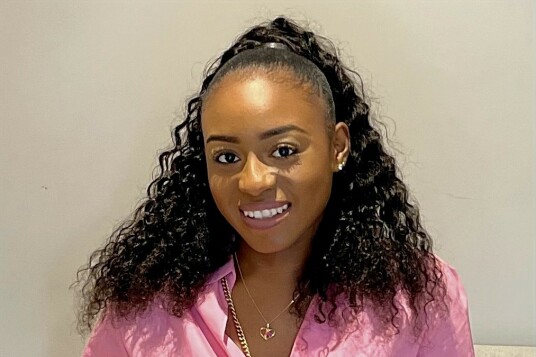Top tips for running efficient meetings

12 suggestions for improving your governing board meetings next year
As your board approaches the end of the year and another full cycle of meetings, here are some suggestions to help make sure your governor and trustee meetings run smoothly in 2023-24.
 How many of these best-practice tips is your board doing already and where else can it improve?
How many of these best-practice tips is your board doing already and where else can it improve?
From making sure everyone has the papers a full 7 days in advance (and actually reads them!), to some suggestions for how to best organise events across the course of the year, it's hopefully some food for thought as we head into the summer break.
1. Build a great relationship between the clerk, headteacher or trust leader and chair
This three-way relationship is vital to effective governance and where there is regular engagement - governance will run more effectively. Set half termly catch-up meetings (between the headteacher, clerk and chair) at the start of the year and let your clerk steer the agenda setting process. The meeting should not be to write the agenda from scratch but to make any tweaks to the clerk’s drafted version and to agree the papers to be provided - and by when.
2.Agree the board’s scheme of work for the year
Governor business should be transparent and other than occasional extraordinary matters, there should be no big surprises. All governors should have oversight of an annual plan at the start of the year and this should include details of when policies and other important documents are due for consideration and/or approval. Individual meeting agendas should clearly stipulate whether items/papers require approval or are for information only - so that all participants are clear on their remit.
3. Ensure papers are provided on time
I refer back to point number 1. Your chair must set strict deadlines for the receipt and circulation of meeting papers. The board does not have to accept any documents which haven’t been provided 7 days in advance - and tabled papers should only be accepted in extenuating circumstances. School and trust leaders have a duty to provide information which enables governors to discharge their statutory duties. Late papers only inhibits governors from doing this and you run the risk of losing some of your best volunteers.
4. Stick to meeting times
I feel I have said this time and time before but if all papers are provided in a timely manner and governors focus on their strategic roles, there is really no need for 3-hour meetings. This usually happens when matters become too operational and the chair should manage this situation carefully. Putting timings on the agenda is all very well but I see so often timings being overlooked. The clerk should intervene if meetings are over-running (or drifting into the operational side) and bear in mind that this it is done in the best interests of everyone in the room.
5. Don’t constantly defer business!
It’s vital that the actions in the minutes detail who is taking responsibility for what and that all parties arrive at the meeting with an update on the status of their agreed action. Deferring and rolling over items is poor practice and matters can easily get forgotten as the weeks fly. The clerk should remind colleagues between meetings of their actions – and if they have not been completed this should be noted in the minutes. When reviewing "Matters Arising", try not to get into lengthy discussions if items have already been placed elsewhere on the agenda.
6. Arrive prepared and read everything
No-one should attend a meeting they are not prepared for. If you spot any discrepancies before the meeting please bring it to the attention of your clerk in an efficient matter – such as dropping a quick email. When agreeing the previous minutes for example. It's not in the interests of anyone to spend 10 minutes either pointing out typos or challenging "who said what".
7.Ask questions!
School leaders spend a lot of time preparing reports and other documents and it can be very deflating when few questions or observations are made. Further, the clerk can’t minute what hasn’t been said. Meetings should consist of appropriate discussions and should be balanced with a healthy amount of support and challenge. If you’re unsure of what to ask, ask your clerk for some examples. The chair should also attempt to involve everyone in the room by inviting questions and comments from specific link governors, at the appropriate times.
8.Leaders: be concise
Providing that papers have been provided in a timely manner, there is no need for school leaders to go through each and every page of their report. Simply highlighting the main points (headline information) is best practice and this allows time for discussion. Headteachers should consult and agree in advance with their boards the content of the headteacher’s report and what they would like to receive further information on. The clerk can provide a template.
9. Be clear on the remit of all participants
If members of the SLT attend governor meetings, do consider first ‘What is their role at this meeting?’ Do they have a regular slot on the agenda for example or do they just attend because they always have done? Do they provide timely papers along with other school leaders? Remember that once the SLT /staff member has finished presenting, they should be free to leave the meeting, enabling governors to focus on the business of the board (as per their own Terms of Reference) – and be able to talk freely about matters.
10. Send timely apologies
There will always be diary clashes and sending apologies to meetings is inevitable in some cases. Please give as much notice as you can, otherwise this can lead to inquorate meetings being postponed or cancelled at short notice. This inhibits the board’s annual cycle of business and is not fair on school leaders who have spent time preparing papers.
Apologies should be sent directly to the clerk so that they can plan accordingly – it is not acceptable to simply pass on an apology verbally via a governor colleague. The minutes should state whether apologies have been accepted or not – and do consider not accepting them where there is a regular pattern.
11.Review, reflect and benchmark
At the end of the year, carry out a board self-evaluation; this can be delegated to a working group of governors. The chair’s 360 process should also be carried out at the end of the year and governors should be given the opportunity to feed back. Ask your clerk for feedback about your board meetings. Your clerk is the board’s critical friend and should be able to share best practice from other educational settings.
12. Get organised for the new academic year
Whilst most boards run the election of chair and vice chair process at the start of the year, consider doing this at the end of the year so that you can hit the ground running in September. This is vital for succession planning. Boards may also want to review individual responsibilities and committee membership so there is complete clarity about their remit, should anything crop up early in the academic year.
And one more thing...
On managing hybrid meetings: it’s all very well giving colleagues the option to attend online (often done so that you have a viable meeting) but do think about how this will be facilitated. What equipment has the school invested in to ensure that colleagues in the room and online can both see and hear everyone? The chair should seek to involve those online so that they also feel a valid part of the meeting.






Post your comment
Comments
Gail 25 Jan 2024, 16:53 (3 months ago)
A useful list of suggestions to consider thank you.
Brian Withington 6 Sep 2023, 14:48 (8 months ago)
Succinct and very helpful - just need to put it all into practice now!
Danielle Goodayle 14 Jul 2023, 05:26 (10 months ago)
Hi Laura. Thank you for this helpful article. I have been ask to become Chair in September at a new school. Whilst I want to get organised now, what would be best practice as I won’t be officially voted in until October? Many thanks for your help.
Patrick Dunne 1 Jul 2023, 18:02 (10 months ago)
Really helpful tips. Like the fact that it starts with ensuring good quality of relationships between the central characters and ends with reflection and review.
Denise Ward 1 Jul 2023, 10:51 (10 months ago)
Great article. As a Clerk to Governors (and a Virtual PA) and I can really relate to it. Having once been stuck in a meeting that lasted 3.5 hours I think giving the Chair a nudge to move on is a great tip!
Anna Houston 30 Jun 2023, 14:54 (10 months ago)
Such a useful article. Having worked as a clerk to governors and subsequently been a chair of governors these straight forward tips really hit the mark. Although I had implemented some of the tips already, I have found some tweaks in the article that can be applied, such as specifically inviting the link governors to ask questions during relevant sections. I also think tip 12 is well worth discussing with the board to potentially implement next year
Hayley 30 Jun 2023, 13:31 (10 months ago)
This is great, it helps having what I tell boards confirmed by someone else/other gov profs! Particularly like point 8, it’s hard to stay engaged when reports are read in meetings
Andrew Symonds 30 Jun 2023, 10:07 (10 months ago)
Great tips Laura.. and I know from experience you ensure they are carried out! Useful for heads, chairs and clerks to understand and implement..
Sharon Ellis 29 Jun 2023, 22:35 (10 months ago)
As a less experienced clerk this has given me the confidence to use my voice and be the board’s professional adviser. Perfectly timed going into a new year too - thank you
Trina 29 Jun 2023, 22:08 (10 months ago)
Great tips here. Really important to run meetings efficiently so you don’t waste valuable time. Good article, thank you .
1 2 next »
No one has commented on this page yet.
RSS feed for comments on this page | RSS feed for all comments